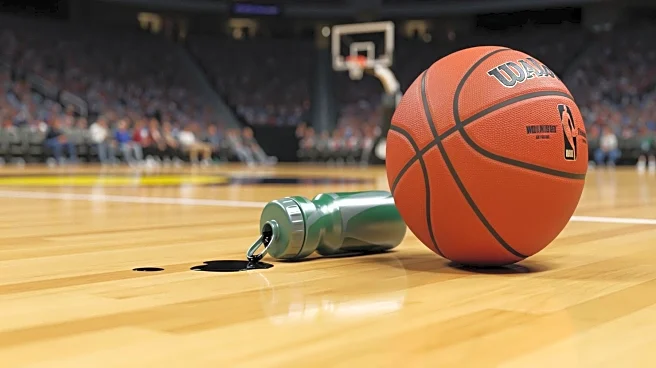What's Happening?
Caitlin Clark, the Indiana Fever's star point guard, faced significant challenges during the 2025 WNBA season due to multiple muscle injuries. These injuries limited her participation to just 13 games, causing her to miss key events such as the Commissioner's
Cup victory and the All-Star Game. Despite her absence, Clark's rookie season had already established her as a formidable player, known for her explosive style that transitioned well from her college career at the University of Iowa to the professional league. Her performance continues to earn respect from coaches across the WNBA, including Sandy Brondello, the new head coach of the Toronto Tempo, who acknowledged Clark's skills as among the hardest to coach against.
Why It's Important?
Caitlin Clark's injuries and subsequent absence from the 2025 season highlight the challenges athletes face in maintaining peak performance amidst physical setbacks. Her situation underscores the importance of player health and management in professional sports, affecting team dynamics and competitive outcomes. Clark's ability to impact games, even when not playing, reflects her influence in the league and the strategic considerations teams must make when planning against her. The Fever's journey to the semifinals without Clark also illustrates the depth and resilience required in team sports, emphasizing the broader implications for team strategy and player development.
What's Next?
Looking ahead, Caitlin Clark's return in 2026 is anticipated by coaches and fans alike, with expectations for her to resume her impactful play. Teams will likely continue to strategize around her unique skill set, preparing for her return to the court. The Fever will aim to leverage her talents to push for a WNBA Finals appearance, building on their 2025 semifinal run. Clark's recovery and performance will be closely watched, potentially influencing future decisions on player health management and team strategies within the league.
Beyond the Headlines
Clark's situation raises broader questions about athlete health management and the long-term impacts of injuries on professional careers. It also highlights the evolving nature of sports medicine and rehabilitation practices, as teams seek to optimize player recovery and performance. The cultural and economic implications of star players' absences can affect fan engagement and league dynamics, prompting discussions on how to support athletes through recovery while maintaining competitive balance.

















